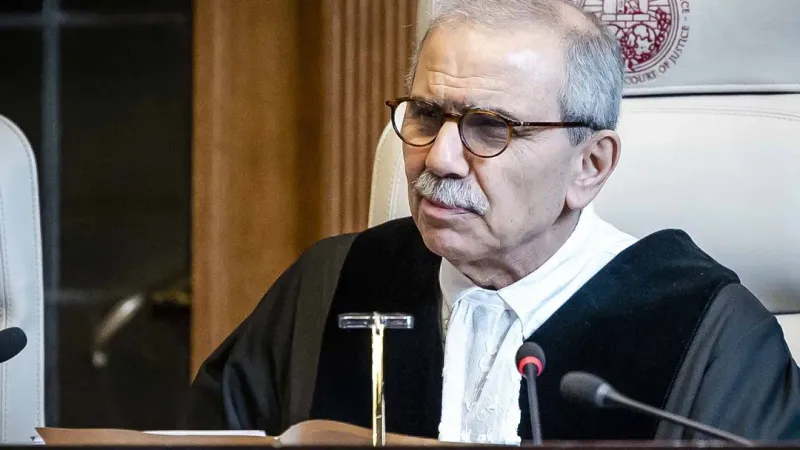Israel's Netanyahu Cancels War Cabinet on Gaza's Postwar Governance
The Israeli war cabinet's Thursday meeting to discuss plans for Gaza's postwar governance was canceled by Israeli Prime Minister Benjamin Netanyahu, as he reportedly caved into pressure from Finance Minister Bezalel Smotrich's Religious Zionism party and agreed to discuss the matter in a meeting ...
Facts
- The Israeli war cabinet's Thursday meeting to discuss plans for Gaza's postwar governance was canceled by Israeli Prime Minister Benjamin Netanyahu, as he reportedly caved into pressure from Finance Minister Bezalel Smotrich's Religious Zionism party and agreed to discuss the matter in a meeting of the larger security cabinet next week.1
- Israel's Channel 12 had speculated that Mossad chief David Barnea and Israel's hostage envoy Nitzan Alon would relay an updated Qatari proposal to the offer Israel made earlier this month seeking the release of about 40 remaining female, elderly, and sick hostages in exchange for a large group of Palestinian prisoners and a two-week truce. Hamas officials have reportedly said that the group will only accept a permanent ceasefire and withdrawal of Israeli forces from the Gaza Strip in exchange for the hostages.2
- Israeli bombardment, which escalated last week, hit the strip on Thursday as Israeli forces focus on central Gaza, targeting the built-up Bureij and Nuseirat refugee camps ahead of an announced ground offensive into the region. Due to the expanded fighting, thousands of Palestinians have fled to overflowing camps along the Egyptian border and the southern Mediterranean coastline — areas Israel is also striking.3
- The Israeli military had warned residents of central Gaza, including the Bureij refugee camp, to leave the area due to its ongoing military operations, instructing them to move south toward Deir al-Balah but to avoid the Salah Al-Din road, which bisects the strip running north to south, because of fighting in the southern city of Khan Younis. It's unclear how many residents are aware of the warnings, given the degradation of communications and internet access.4
- Meanwhile, Israeli minister Benny Gantz, who is part of the country's war cabinet, on Wednesday threatened to intensify Israeli military action against the powerful Iranian-backed political party and armed group Hezbollah in southern Lebanon, demanding the group stop military action against Israel and withdraw from the border areas so that Israelis displaced by the fighting could return. Israeli Foreign Minister Eli Cohen said that Israel would pursue a diplomatic solution but that 'all options are on the table.'5
- Gaza's health ministry reports that the conflict has killed over 21K people in the Gaza Strip, the majority of whom were women and children. The official Israeli death toll stands at 1.2K people and there are still over 100 hostages being held in the Gaza Strip.6
Sources: 1The Times of Israel (a), 2The Times of Israel (b), 3Associated Press (a), 4CNN, 5CBS and 6Associated Press (b).
Narratives
- Pro-establishment narrative, as provided by CNN. Though, of course, Israel has a right to dismantle Hamas's military capabilities, it must wage this war in a humane way. The amount of civilians being killed will only galvanize Palestinians against peace and push them into the arms of Hamas. A more thorough and surgical campaign is now needed to eliminate Hamas's leadership in Gaza, as Israel is losing global support.
- Pro-Israel narrative, as provided by Jerusalem Post. Though this has been a tragic war, Israel cannot allow Hamas to survive. It seems that the Biden administration wants to pressure Israel into a ceasefire, and Israel must push back against such short-sighted thinking. Israel is a sovereign country and has the right to defend itself from terrorism and pursue its own interests. Hamas's military capabilities must be eliminated so that the group can never launch a terrorist attack like Oct. 7 again.
- Pro-Palestine narrative, as provided by Middle East Eye. Israel continues to demonstrate that its war is not against Hamas but against the Palestinian people as a whole. Nowhere in Gaza is safe, and Israel has effectively rendered the north of the strip unlivable, as it kills Palestinians at an unprecedented rate. Though the US, Israel's biggest ally, wants to minimize the war's intensity, it must instead exert more pressure to end the war completely.







